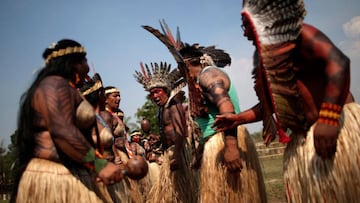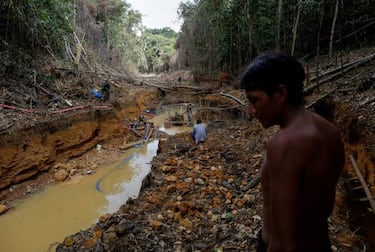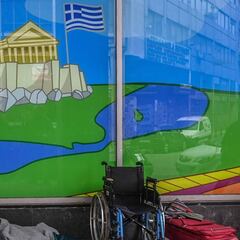Coronavirus: Amazon tribes at 'risk of genocide' from Covid-19
Authorities in the Brazil, along with defenders of the rights of indigenous groups, fear that these communities could be wiped out if action is not taken.

The coronavirus that is taking hold in almost every country in the world has now even reached some tribes in the Brazilian Amazon. Authorities in the South American nation along with defenders of the rights of indigenous groups fear that these communities could be wiped out if the virus spreads among the people with very weak immune systems and no additional support.
Covid-19 arrives in Amazon rainforest
The alarm bells started to ring on 9 April when a young man from the Yanomami tribe, in the northern area of the Brazilian state of Roraima, died from Covid-19, as reported by local health officials. The teenager had told family and friends of the symptoms when they began, and the concern was that this could have quickly spread across those in his surroundings. It is as yet unknown where and how he was infected, something under investigation, although suggestions are that it could have been from a community of miners who camp near the tribe in a gold reserve.
It turns out that this young man is the second victim of the virus, after an 87-year-old Borari woman (from the Bora village) also died from the disease. In addition, hundreds of people who did not follow the safety and hygiene protocols to prevent the spread attended her funeral, and this has national authorities concerned

Risk of infected Amazon tribes
The total number of those infected by coronavirus in these parts to date is seven, distributed across three states of the Amazon. Four of them were infected by an indigenous health worker who had attended a conference in southern Brazil and had not respected the isolation measures.
Brazil’s Federal Public Ministry has already warned of the "risk of genocide" of indigenous communities if the virus spreads further in the Amazon. The tribe members are constantly moving location and the lack of public policies make this area conducive to the spread of the disease.
Related stories
The national Agency for Indigenous Affairs (FUNAI) has confirmed the existence of 28 communities in Brazil that live in total isolation, with outsiders prohibited from entering to avoid contact and contagion of diseases that could be lethal for these people. It is believed, however, that there could be more than 80.
Faced with the lack of action from governments, the tribes themselves have adopted their own measures to prevent the spread. The miners have been stopped from working in the area, and clear posters have been put up advising that entry by outsiders is prohibited. Experts say that "it is impossible to stop the virus if it enters a tribe due to the type of coexistence they have."


